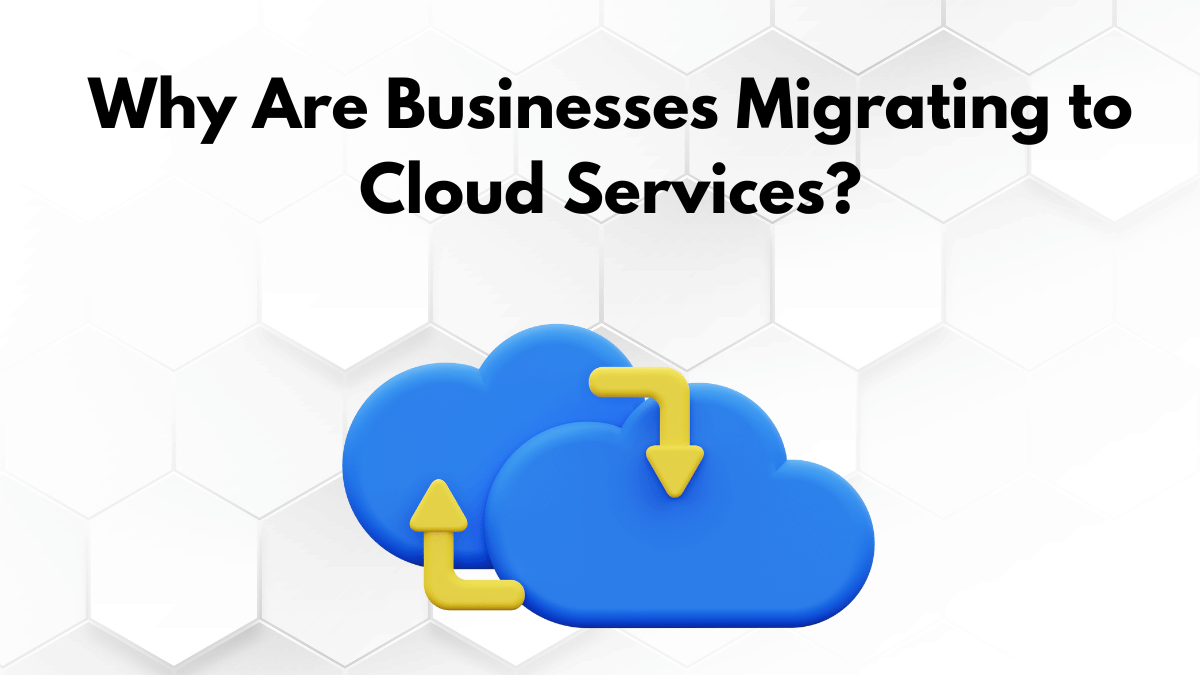
In today’s business market, agility and cost-effectiveness are paramount for success. This is why companies are always in search of constant ways to optimize their business operations. Improving business operations helps businesses to enhance collaboration as well as future-proof their IT infrastructure. This is where cloud computing emerges as a business best friend.
Migration to cloud services offers a business array of benefits. These benefits can revolutionize business operations to their maximum efficiency. In this blog, we have discussed a few important reasons why businesses are migrating to cloud services. In addition to, potential challenges, and considerations for a successful cloud migration journey.
What is Cloud Migration?
A Paradigm Shift in IT Infrastructure!!
Cloud computing refers to an on-demand delivery of IT resources. These resources can be services, storage, databases, software, and networking – over the internet. This shift means companies are moving from managing their data centers and hardware, including doing business operations over the cloud with some other external service providers such as Amazon Web Services (AWS), Microsoft Azure, or Google Cloud Platform (GCP).
Advantages of Cloud Migration for Business
This paradigm shift offers a plethora of advantages, categorized into four key areas:
1. Cost Optimization:
- Reduced Capital Expenditure (CapEx): Cloud services cut off all the upfront costs related to the purchase and maintenance of IT infrastructure on-site. Businesses have to pay for their usage only, and that will be charged either monthly or hourly—hence, a great reduction in CapEx.
- Operational Expenditure (OpEx) Optimization: The cloud obviates the need for internal server maintenance, management of software updates, and patching of security, hence freeing up internal IT resources while at the same time reducing internal OpEx. In-built scalability ensures companies do not over-provision hardware.
2. Enhanced Agility and Scalability:
- On-Demand Scalability: Cloud migration Services take care of the changes in the scale of business requirements, given its capability for easy turn-up and turn-down of cloud resources. An enterprise can upscale the processing power and storage when there is large traffic of the transactions. When it is a bit dull, it can drop the scale down. This elasticity does not need complex capacity planning or future-proofing.
- Faster innovation: Enterprises can build and deploy applications many times faster with the cloud.
Faster time to market for products and services: Enterprises are able to reduce their service/product development cycles through ready-made cloud infrastructure and services.
3. Improved Security and Reliability:
- Advanced Security Features: The cloud provider comes with a huge investment in strong security measures, which include data encryption, access control, and systems for threat detection, usually exceeding the security capacities made available to most businesses around their on-premises infrastructure.
- Disaster Recovery and Business Continuity: Cloud providers guarantee that their data centers are built with redundancy in case of service delivery and even offer disaster recovery mechanisms to ensure, with all certainty, the least possible disruptions of operations and data loss. In addition, geographically distributed data centers and backups provide for much enhanced business continuity.
4. Empowering Collaboration and Mobility:
- Remote Access and Collaboration: Access cloud-based applications and data from anywhere in the world with an internet connection, therefore supporting the idea of a remote or hybrid workforce. Work jointly with all your team from whatever place they are to complete your projects.
- Enhanced Device Agnosticism: Generally, cloud services, like the one under question, usually are accessible from personal computers, tablets, laptops, and even smartphones. This implies better device agnosticism as the kind of device an employee has should not be controlled.
Beyond the Core Benefits: A Spectrum of Advantages
The cloud computing benefits go beyond the above-discussed core areas. This means businesses have an opportunity to access these new capabilities via leading technologies possessed by cloud providers, such as Artificial Intelligence, Machine Learning, and Big Data Analytics. Companies can leverage the cloud for:
- Simplify IT Management: Cloud services automatically handle a large number of IT chores within the IT divisions, which can enable internal IT staff to focus more on new and strategic initiatives, and also on core business activities.
- Strengthen Compliance: Cloud services and providers offer numerous types of compliance certifications and tools for companies to have a stronger backup regarding their compliance with industry-related regulations and standards of data security.
- Encourage Innovation and Experimentation: The cloud allows room for innovation by adopting a high pace of prototyping and experimentation using new technologies and even business models at less cost and risk.
- Enhance sustainability: In most cases, cloud data centers favor energy use friendliness in comparison to cloud-premise facilities, hence the enhanced sustainability.
Conclusion: Embracing the Cloud for Future-Proof Success
This is how the cloud revolution is dramatically changing how things were traditionally done. Companies that are open to cloud services will bring many benefits to the organization: from cost savings to agility, better security, and more empowered collaboration. On the contrary, effective migration should be careful in planning, critical in assessment, and holistic in approach so that likely stumbling blocks on the way can be effectively checked. The above—putting all that into due consideration with a strategic approach—would be a good way of walking on the clouds for the firms as a robust platform of growth, innovation, and success future-proofing.
Choose Exinent for Cloud Migration
Many companies understand the potential benefits of cloud migration – increased agility, scalability, and cost savings. But navigating the complexities of cloud migration can be daunting. That’s where Exinent steps in.
Our team of cloud migration ninjas possesses the expertise and experience to streamline your transition. Why wait when you can hire an Exinent Cloud Migration Solution? Contact Today!
